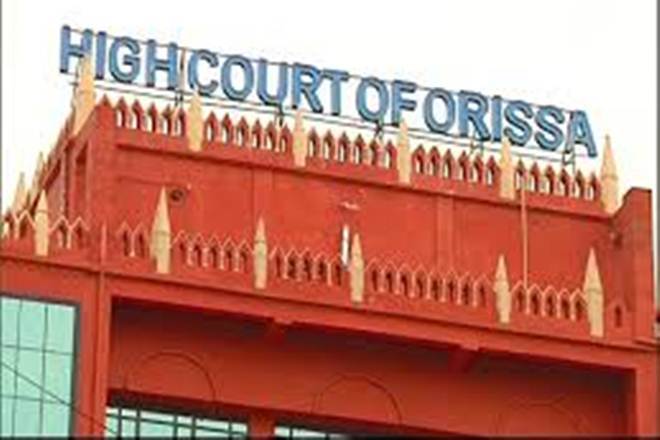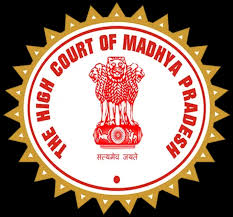S.C. Mathur, J.
1. The petitioner claiming to be owner of the house in suit, has filed the present petition under Article 226 of the Constitution, to quash the proceedings in Suit No. 316 of 1986 filed by opposite parties No 2 to 4 in which petitioner, opposite party no 6 Mijjan and opposite party no. 5 Smt. Sarwar Jahan are defendants 1, 2 and 3. Apart from the prayer for quashing the proceedings, it is also prayed that a writ of mandamus be issued against the Munsif North, Lucknow, opposite party no. 1, commanding him to execute decree for ejectment & arrears of rent passed against opposite party no. 6 Mijjan. The petitioner''s case is thus:
2. Taqaiya Begum was owner of the house in question viz. house no. 150/16. Mohalla Gwynneganj, Lucknow and opposite party no 6 Mijjan was her tenant in the said house. She sold the house to Mujawar Husam, who in his turn sold it to Radhey Lal. Radhey Lal filed suit against opposite party no. 6 for recovery of arrears of rent and possession. The suit was decreed ex parte on 8th April, J978. Application for restoration filed by opposite party no. 6 was rejected. Against rejection of this application revision was filed by opposite party no. 6, which was also rejected. Opposite party no. 6 thereafter filed writ petition No. 3015 of 1979 in this Court. Meanwhile there were successive transfers of the property in suit. Radhey Lal transferred it to Mohammad Yunus and Mohammad Yunus. transferred to Mohammad Khaliq and Mohammad Khaliq transferred it to the petitioner. Petitioner having become owner of the house made an application for impleadment in the writ petition which was allowed. The writ petition was dismissed on 5th September, 1986. Thereafter the petitioner started proceedings to execute the exparte decree passed against Sri Mijjan. On this step being taken by the petitioner, opposite parties nos. 2 to 4 filed suit No. 316 of 1986 in the Court of Munsif North, Lucknow alleging therein that their father Nanhey Mirza was the original tenant of the house in suit and on his death in the year 1963, tenancy rights were inherited by them and their sister Sarwar Jahan, opposite party no. 5 and that brother Mijjan, opposite party no. 6. On this basis it was pleaded that they were cotenants along with opposite parties 5 and 6 and no notice of termination had been served upon them & opposite party no. 5 and they were not impleaded in the suit in which decree for eviction and arrears of rent was passed and the said decree was, therefore, not binding upon them. It was asserted that Mijjan paid rent of the house in question on behalf of the plaintiffs also. It was further asserted that even after their marriage they continued to live in the house in question as their husbands also started living in the said house. The decree passed against Mijjan was described as collusive.
3. In the aforesaid suit, opposite parties 2 to 4 made an application under Order 39 Rules 1 & 2 read with Section 151 of the Code of Civil Procedure to restrain the defendants, their agents and servants, assignees, associates and representatives from dispossessing or ejecting the plaintiffs from the house in question till the disposal of the suit.
4. The petitioner has contested the aforesaid suit on the following pleas:
(i) Nanhey Mirza was not the tenant of the house in question and that Mijjan alone was tenant, as such, neither the plaintiffs of the suit nor their sister Smt. Sarwar Jahan had any tenancy right in the house in question;
(ii) in any case by their action, the plaintiffs and opposite party no. 5 have surrendered their rights in the house in question, if they had any.
(iii) the plaintiffs and opposite party no. 5 were never in possession of the house in question;
(iv) after marriage they went to reside with their husbands; and
(v) the plaintiffs have filed the suit at the instance of their brother Mijjan.
5. The trial court by its ordered dated 13th October, 1986 granted injunction prayed for by the plaintiffs, observing that prima facie the plaintiffs were cotenants of the house in question and no notice of termination of tenancy had been served upon them and they were not impleaded in the suit in which decree for ejectment was passed. Prima facie the plaintiffs have been found to be residing in the house in question.
6. It appears that the above injunction order has become final and is still operating. However, the suit which was filed in the year 1986 is still pending. Exasperated with the continued pendency of the suit resulting in delay in execution of the decree, the petitioner has filed the instant writ petition seeking the relief''s indicated hereinabove.
7. Learned counsel for the petitioner has submitted that there is no prima facie evidence on record to establish the claim of the plaintiffs that they had been in occupation of the house in question even after their marriage and, therefore, the injunction sought should not have been granted. It is also asserted that even if the facts stated by the plaintiffs are correct, their status will not be that of cotenant, but would be of joint tenant and notice of eviction to one jointtenant is sufficient to terminate the tenancy. On these bases it is submitted that the plaintiffs cannot escape from the consequence of the ejectment decree passed against Mijjan. Learned counsel has cited authorities which will be noticed hereinafter. It is submitted that under the UP. Urban Buildings (Regulation of Letting, Rent and Eviction) Act the plaintiffs are not legal representatives of Nanhey Mirza and, therefore, they cannot claim tenancy rights. It is also the submission of the learned counsel that the present suit is an abuse of process of Court and, therefore, the proceedings are liable to be quashed.
8. Sri S.N. Bhattacharya, learned counsel for the plaintiffopposite parties has submitted that the petitioner is guilty of laches inasmuch as the suit was filed in the year 1986 and the present petition has been filed after four years when the suit is ripe for final hearing. It is submitted that the petitioner will be deemed to have acquiesced in the proceedings. Nanhey Mirza died in the year 1963 when U.P. Control of Rent and Eviction Act, 1947 was in operation and, therefore, the rights of the plaintiff cannot be determined with reference to U.P. Urban Buildings (Regulation of Letting, Rent and Eviction) Act. It is submitted that under 1947 Act all persons who were heirs under the Personal Law became tenant by succession on the death of the original tenant. It is claimed that under the Muslim Personal Law, the plaintiffs are heirs of Nanhey Mirza and, therefore, they acquired tenancy rights. It is pressed that the tenancy rights will be available even if it is found that the plaintiffs were not actually residing in the house in question. In support of his submission the learned counsel has cited 1985 (1) ARC 1 (SC) Jaspal Singh v. Additional District Judge, Bulandshahr and others.
9. In my opinion even on the facts pleaded by the plaintiffoppositeparties no relief can be granted to them. Indeed it had been held by a Division Bench of this Court in AIR 1977 Allahabad 38 Ramesh Chand Bose v. Gopeshwar Prasad Sharma that on the death of a tenant his heirs succeed as tenants in common and each tenant in common will have to be served with notice under section 106 of the Transfer of Property Act and will have to be impleaded in suit for eviction, but this authority stands overruled by the decision of their Lordships of the Supreme Court in H.C. Pandey v. G.C. Paul 1989 (2) ARC 26: (1989 (7) LCD 292). It has been observed in paragraph 4 on the death of the original tenant, subject to any provision to the contrary either negativing or limiting the succession, the tenancy rights devolve on the heirs of the deceased tenant. The incidence of the tenancy are the same as those enjoyed by the original tenant. It is a single tenancy which devolves on the heirs. There is no division of the premises or of the rent payable therefor. That is the position as between the landlord and the heirs of the deceased tenant. In other words, the heirs succeed to the tenancy as joint tenants�. Earlier in AIR 1963 Supreme Court 468 Kanji Manji v. The Trustees of the Port of Bombay their Lordships had laid down that in the case of joint tenancy notice to one of the joint tenants was sufficient and the suit was also good against one of them. In view of the legal position which now stands crystalized, the plaintiffs are not entitled to any relief even if all their assertions are accepted. The suit is accordingly unnecessarily pending in the court below.
10. Learned counsel for the petitioner has cited authorities for submitting that where a suit is an abuse of the process of the Court the proceedings deserve to be quashed. Such quashing was done in 1987 (1) ARC 406 Smt. Mahadevi and others v. Civil Judge, Farrukhabad and others and 1987(1) AWC 235 Smt. Raj Kumari Kapoor v. Civil Judge, Kanpur and others There appears to be substance in the submission of the learned counsel for the petitioner that the present suit is an abuse of the process of the court. The decree for eviction was passed on 8.4.1978 i.e. 13 years ago and the same has not been executed till date. The suit which has given rise to the present writ petition was filed on 5.9.1986 and although more than four years have passed it also continues to be pending. The plaintiffs have obtained temporary injunction on account of which a decree validly passed cannot be executed.
11. The petitioner has prayed for quashing of the proceedings in suit and for a mandamus to opposite party No. 1 to command him to execute the decree passed on 8 4.1978. I am of the opinion that the petitioner is entitled to both the relief''s.
12. The plaintiffopposite parties derive no benefit from the decision in Jaspal Singh''s case (Supra). This judgment was relied upon for the proposition that on the death of a tenant the tenancy rights are inherited by all the heirs as cotenants irrespective of the fact whether they were residing in the accommodation or not. This judgment, however, does not lay down that separate notices for termination of tenancy will have to be served on such heirs.
13. The plea of acquiescence is also equally misconceived. The petitioner obviously waited for disposal of the suit. It was only when the suit could not be disposed of even after it had remained pending for more than four years that the present writ petition was filed.
14. In view of the above the petition is allowed and the proceedings in Suit No. 316 of 1986 of the Court of Munsif (North), Lucknow, are hereby quashed. The learned Munsif shall proceed to execute the decree passed in Suit No. 349 of 1970 in accordance with law.

